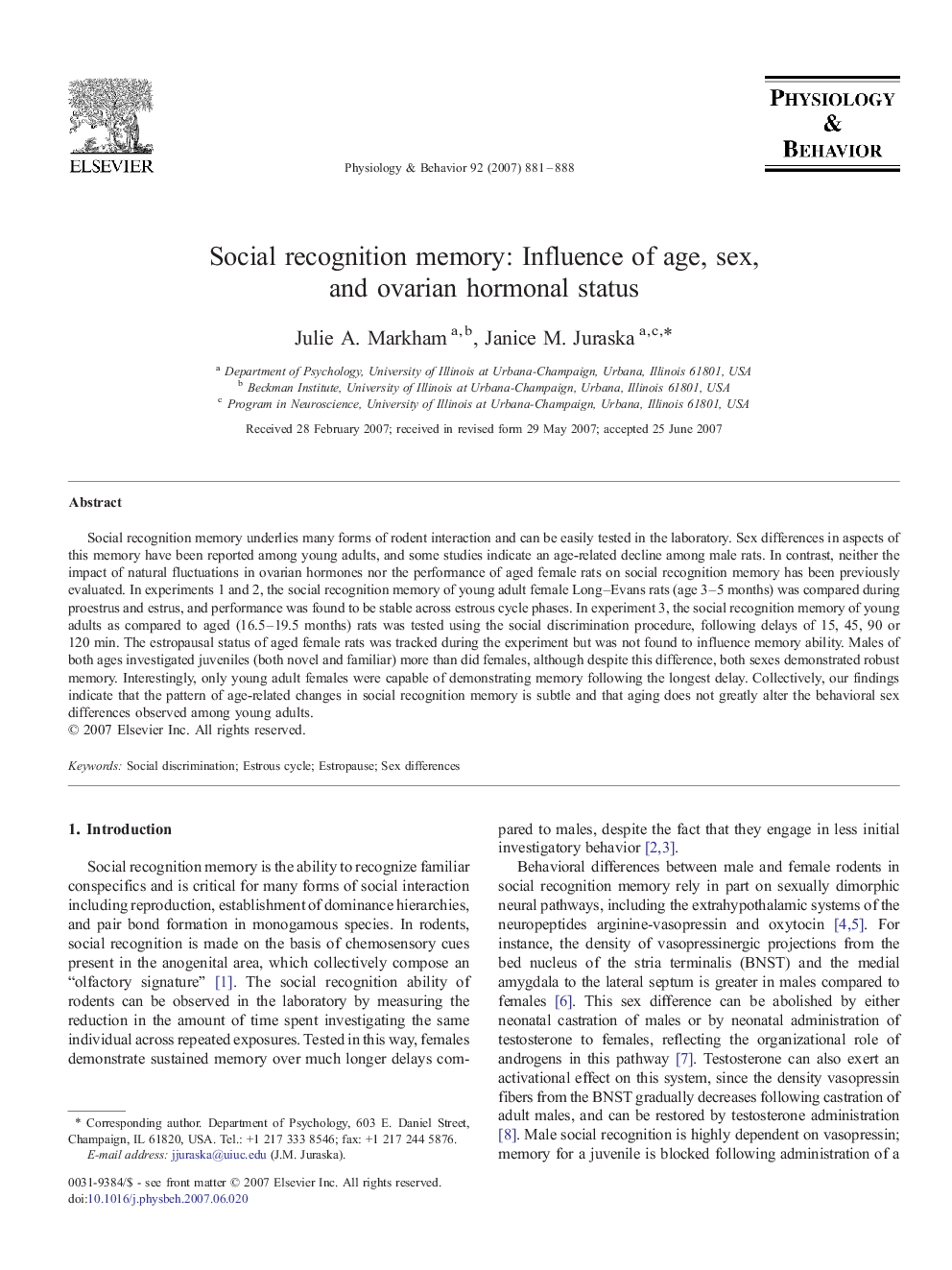| Article ID | Journal | Published Year | Pages | File Type |
|---|---|---|---|---|
| 2845924 | Physiology & Behavior | 2007 | 8 Pages |
Social recognition memory underlies many forms of rodent interaction and can be easily tested in the laboratory. Sex differences in aspects of this memory have been reported among young adults, and some studies indicate an age-related decline among male rats. In contrast, neither the impact of natural fluctuations in ovarian hormones nor the performance of aged female rats on social recognition memory has been previously evaluated. In experiments 1 and 2, the social recognition memory of young adult female Long–Evans rats (age 3–5 months) was compared during proestrus and estrus, and performance was found to be stable across estrous cycle phases. In experiment 3, the social recognition memory of young adults as compared to aged (16.5–19.5 months) rats was tested using the social discrimination procedure, following delays of 15, 45, 90 or 120 min. The estropausal status of aged female rats was tracked during the experiment but was not found to influence memory ability. Males of both ages investigated juveniles (both novel and familiar) more than did females, although despite this difference, both sexes demonstrated robust memory. Interestingly, only young adult females were capable of demonstrating memory following the longest delay. Collectively, our findings indicate that the pattern of age-related changes in social recognition memory is subtle and that aging does not greatly alter the behavioral sex differences observed among young adults.
